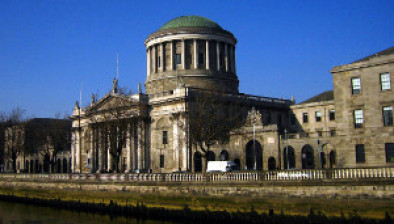High Court: Family refused extension of time to challenge international protection decision
A family who were refused international protection and subsequently lost an appeal to the International Protection Appeals Tribunal failed to provide any explanation which would warrant the grant of an extension of time to bring judicial review proceedings in the High Court.

About this case:
- Citation:[2020] IEHC 32
- Judgment:
- Court:High Court
- Judge:Mr Justice Richard Humphreys
Commenting that to accept the explanations provided by the applicants would be to drive “a coach and four” through the legislation, Mr Justice Richard Humphreys said the applicants could not rely on their own failures to inferentially propel themselves over the burden of proof.
Background
The applicants, GM, IG, GM and MM, are a family from Georgia who were refused international protection. On 8 October 2018, the International Protection Appeals Tribunal dismissed their appeal.
The following day, the applicants’ solicitor advised that they should apply for a review of the decision to refuse permission to remain in the state, pursuant to section 49(7) of the International Protection Act 2015. The applicants’ solicitor also indicated that advice was being sought from Counsel regarding the possibility of applying for judicial review of the October 2018 IPAT decision; however, judicial review proceedings were not instituted.
In the High Court, the applicants did not provide particular details about whether a formal opinion from counsel was produced; however, Mr Justice Humphreys said that on the facts of this particular case it could be inferred that the lawyers did not think there were grounds for judicial review.
In early 2019, the section 49(7) review applications were refused by the Minister for Justice and Equality, and the applicants were advised that there were no grounds for judicial review of this decision.
Thereafter, in February and March 2019, the applicants sought alternative legal advice. Mr Justice Humphreys explained that the applicants were then “advised” by immigration consultants THL Legal, “who on this evidence appeared to have improperly prepared court documents although they are not solicitors”.
The applicants also tried a number of other alternative firms of solicitors.
In March 2019, deportation orders were made in relation to the applicants.
In May 2019, the applicants “eventually got in touch with their present solicitors”, through which the applicants instituted proceedings challenging the deportation orders and the October 2018 IPAT decision.
The applicants were granted an extension of time without prejudice at the leave stage.
A coach and horses through the legislation
In the High Court, the Minister for Justice and Equality, the Attorney General and Ireland challenged the application for an extension of time.
The applicants submitted that the delay in challenging the October 2018 IPAT decision was because:
- They were advised that papers had been sent to counsel regarding a possible judicial review and there was no evidence that counsel had come back with a definite position;
- They were not advised to seek a second opinion.
Regarding the latter, Mr Justice Humphreys said that this was “almost by definition … not a good and sufficient reason”. He said that to accept such an explanation would be to drive a coach and horses through the legislation because it would apply to vast numbers of applicants, and indeed with a little adjustment could be made to apply to any applicant where the lawyers decide not to seek judicial review of a given decision.
Mr Justice Humphreys said that this would “allow the dormant claimant to jerk into life months or years later and complain that the delay was the responsibility of their lawyers and not themselves”.
Referring to Flanagan v Ring & ors [2016] IEHC 155 and Forum Connemara Ltd v Galway County Local Community Development Committee [2016] IECA 59, Mr Justice Humphreys said that the fact that a lay person is relying on lawyers is not a reason to “second-guess the lawyers decisions or approach” – unless it is clear that the legal advice was negligent or wrong, as per FG v Child and Family Agency [2016] IEHC 156 where the applicant was given incorrect legal advice as to the limitation period applicable to judicial review to challenge an order of the Circuit Court. Mr Justice Humphreys said there was nothing like that in the present case.
In this case, the operative period to challenge the IPAT decision was 28 days from being notified on 8 October 2018.
Mr Justice Humphreys said that it meant nothing that no written opinion of Counsel was exhibited as to whether there were grounds for judicial review – especially since nobody did anything to clarify the matter. He added that the applicants could not “rely on their own failure to do so in order to claim an absence of evidence from which they inferentially can propel themselves over the burden of proof”.
If the operative period for challenging the IPAT decision was when the applicants “became entangled with THL Legal”, Mr Justice Humphreys said that different considerations might have arisen. However, for the relevant period, Mr Justice Humphreys was satisfied that the applicants did not have an explanation for the delay.
Refusing the extension of time to challenge the IPAT decision, Mr Justice Humphreys explained that the challenge to the validity of the deportation orders was “entirely dependent on the IPAT challenge” and, consequently, this was also dismissed.












